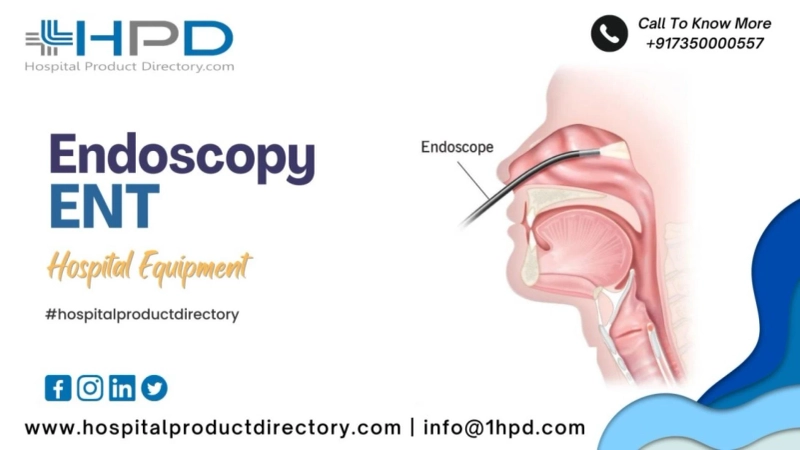Nasal endoscopy is a process used to look at the inside of your nasal hollow and openings to your sinus passage. Your healthcare provider incorporates an endoscope bought from Endoscopy ENT suppliers (a long pipe with a camera and a light) into your nose to inspect your nasal and sinus region. The camera seizes video pictures and flings them onto a screen.
When is Nasal Endoscopy Required?
Your healthcare provider may endorse nasal endoscopy if you have:
Nasal bottleneck or obstruction.Rhinosinusitis (adenoidal and sinus irritation or infection).Headaches.Facial discomfort above your eyes and around your sinuses.Long-lasting nosebleeds.Nasal growths.Nasal cancers.Anosmia (forfeiture of sense of smell).Cerebrospinal fluid (CSF) seepage (a sporadic condition in which the clear liquid that surrounds your brain leaks through a hole or slit in connective tissues).Nasal endoscopy is also used for confident actions, including:
Finding a sinus culture or tissue example (biopsy).Eliminating a distant article from a child’s nose.Healing sinus contagions, nasal polyps, and nasal cancers.How do I Formulate for Nasal Endoscopy?
Usually, there aren’t any special provisions obligatory for your nasal endoscopy procedure. Your healthcare provider can tell you if you require to do anything exactly before your visit. People who take blood solvents must inform their healthcare provider and may require to momentarily stop taking these medicines, but this is infrequently the case.
What can I imagine during nasal endoscopy?
Naturally, you’ll be in a settled position for your nasal endoscopy. First, your healthcare provider decongests and partly deadens your nose to make the exam more relaxed. They may also apply a topical decongestant to decrease puffiness, which permits the endoscope bought from Endoscopy ENT suppliers in India to move easily. Next, your healthcare provider appends the endoscope and thoroughly inspects your nasal and sinus passages, checking for any irregularities. After probing one side of your nose, your healthcare provider will replicate this step on the opposite side. If essential, they’ll take away a tissue example and send it to a pathology laboratory for investigation.
How sore is nasal endoscopy?
Nasal endoscopy shouldn’t pain; though, you’ll perhaps feel pressure during the procedure. The dazing spray may deaden your mouth and gullet, as well as your nose, and it does have an unpleasant taste. The cold must go away in about 30 minutes. Nasal endoscopy after-effects may comprise slight tenderness in your nose and gullet. These indications usually solve on their own in one or two days.
What can I imagine after nasal endoscopy?
Due to the lasting coldness from the anesthetic spray, it’s a good idea to evade eating and drinking for about an hour after your nasal endoscopy. Your healthcare provider will let you know if you require to follow any additional directives.
Follow your healthcare provider’s endorsements concerning supplements and medicines. In many occurrences, your healthcare provider will plan another nasal endoscopy in the future to screen your progress.
What are the dangers of nasal endoscopy?
In broad, nasal endoscopy is harmless. Infrequently, though, people may experience problems, including:
Hostile response to the anesthetic or decongestant.Collapsing.Nosebleeds.Precise dangers depend on several issues, including your age and other current health conditions. Be sure to ask your healthcare provider about possible problems during your consultation.
Can nasal endoscopy reason for infection?
Very infrequently, people may acquire an infection ensuing nasal endoscopy. Call your healthcare provider if you acquire fever, anxiety, biliousness, or other signs of infection.
When would I know the fallouts of nasal endoscopy?
Your healthcare provider may review the consequences of your nasal endoscopy with you immediately. If they require more information to sketch a treatment plan, they may order more imaging examinations, such as a CT examination.
When ought I call my doctor?
Any time you have a query or anxiety regarding nasal endoscopy, call your healthcare provider. If you’ve previously had the procedure, plan an appointment with your healthcare provider if you mature pain, fever, or other troublesome indications.
0


